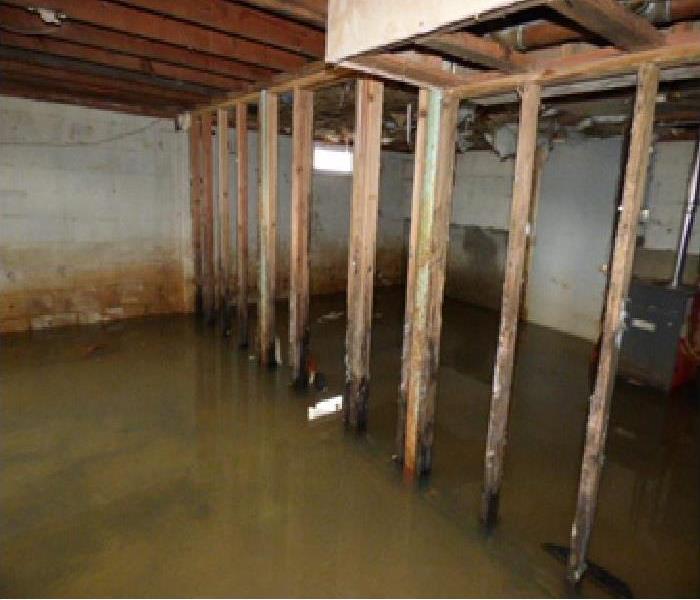Flodding: What to do before, during, and after.
10/13/2017 (Permalink)
Flooding is one type of undesired disasters that could result from a storm or an accident in your home or business. It is important to know that even a few inches of flooding water could cause serious damage to your property, it could be life threating, and it could happened at any time and sometimes without notice. Since any homeowner is exposed to this kind of incident, this is the right time to ask yourself about your home insurance and if you are covered (most standard homeowners insurance do not include this kind of coverage and you will need to call your agent and ask about the National Flood Insurance Program). This could make a big difference in case that you have to deal with this disaster.
Besides making sure that you have flooding insurance, there are some recommendations to follow in case of a flooding emergency (before, during, and after it happens):
- Before: Remember that the most important thing is to save yourself and your loved ones (including pets). Therefore, if directed by your local officials evacuate the zone before flooding happens. If possible secure your home (some homeowners use homemade dams made of sand to help to protect their property), disconnect appliances, move valuables to a safe place, and turn off utilities. Finally, bring with you copies of important documents in case originals get affected.
- During: In case it is too late to leave and you find yourself in a flooding situation, make sure to move to a higher ground, if necessary go onto the roof of your house (try to avoid going into a closed attic). Do not walk in flooding waters, this is a really important recommendation not only because this water could carry rocks, debris, sewage, etc. but because only six inches of moving water could make you fall. This also applies to driving your car since only one foot of water can move your vehicle off to the road.
- After: Finally If you evacuated only return to your property when local authorities say it is safe to do so and follow these recommendations:
- Be careful when accessing the property as many hidden damages could become even more dangerous than the flood itself.
- If it is safe turn off electrical breakers before touching or moving any electronics.
- Discard any food items that have been in contact with the flooding waters.
- Call your insurance company and if possible take pictures to help the claim process
- Finally call us SERVPRO of Dover/Stillwater 973-810-2825, we recommend that you do not delay to give us a call because the faster we start the cleaning process the faster we can restore your home and avoid further damages to your property.
Sometimes it becomes impossible to avoid or prevent dangerous circumstances like flooding, but what we can do is to be prepared to know how to handle the situation and stay safe. We hope these recommendations are useful to you and your family. Please call us if you ever have a flooding emergency, we are here 24/7 to serve you and to help you to restore your property.






 24/7 Emergency Service
24/7 Emergency Service
